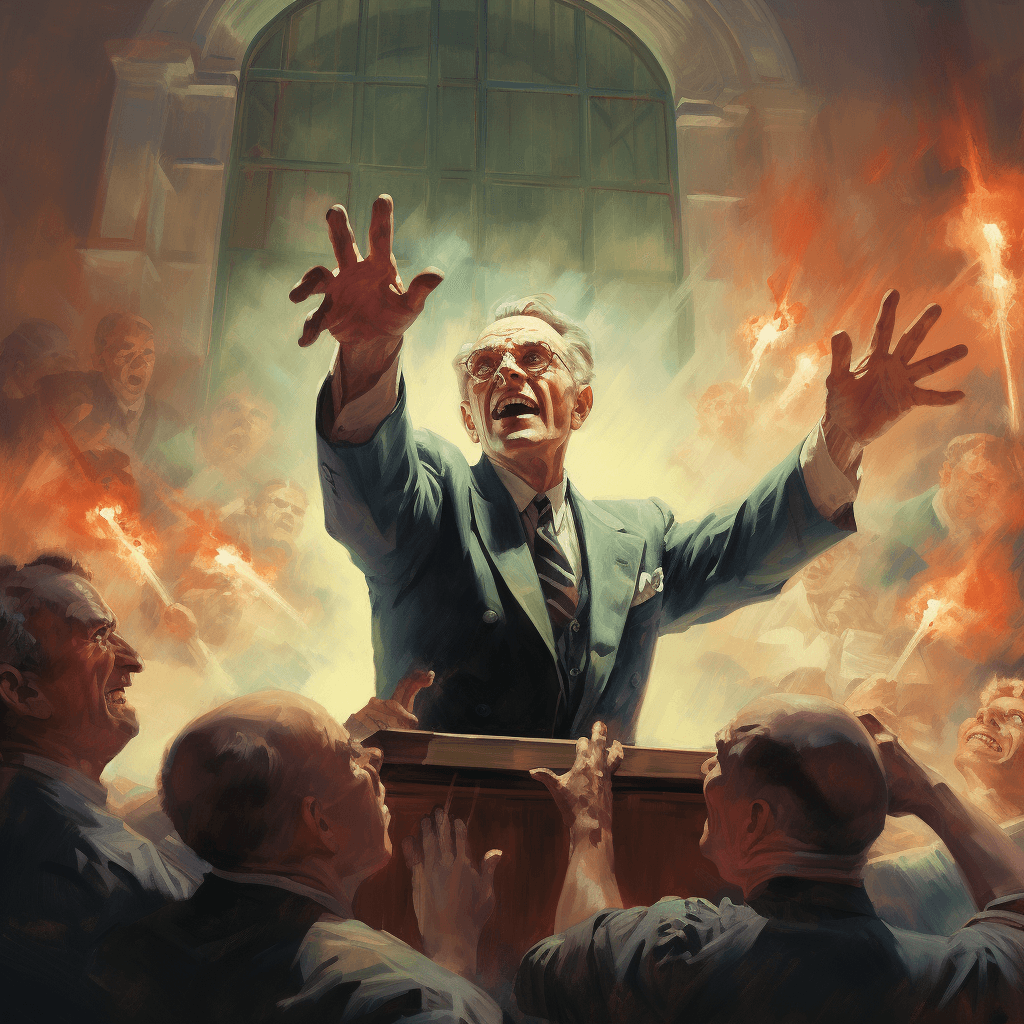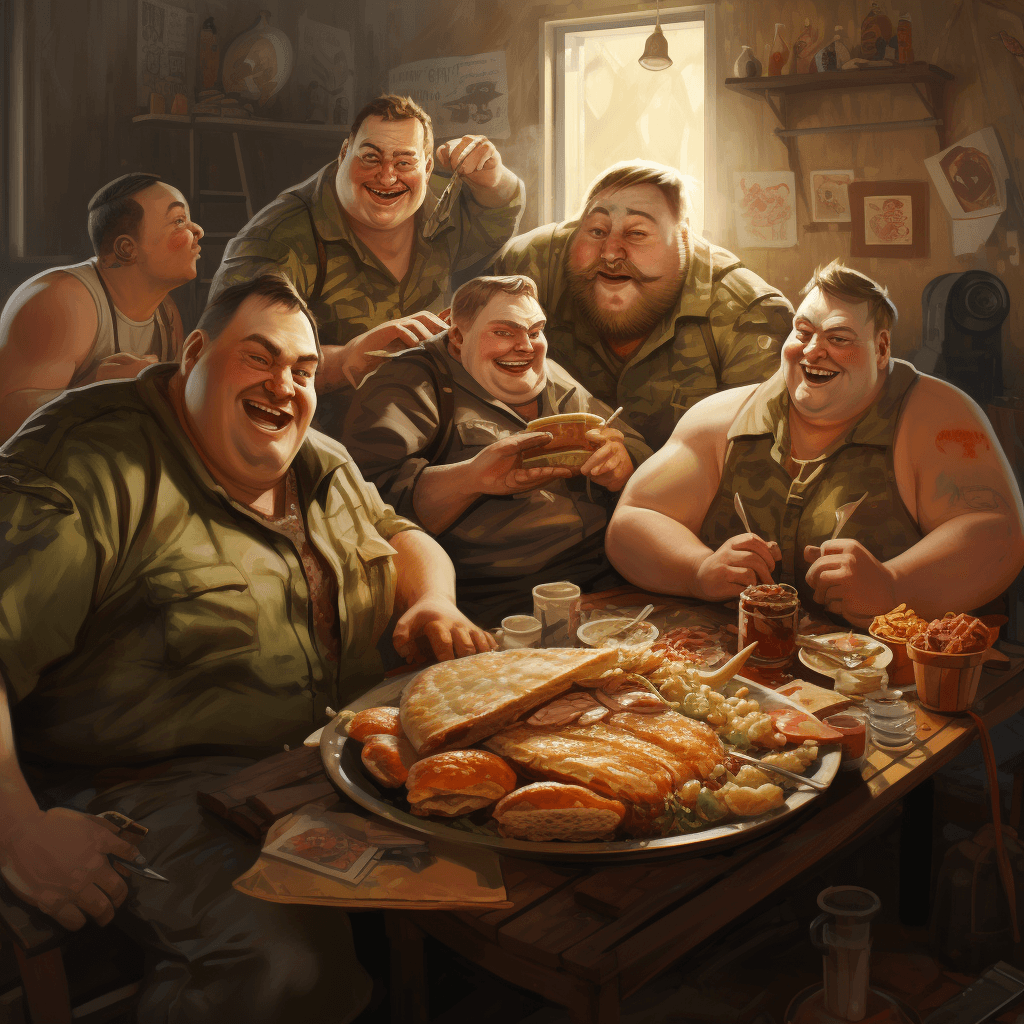How All of Russian TV Became State-Controlled
Short biography of the freedom that never happened.



Pseudoscience consists of statements, beliefs, or practices that claim to be both scientific and factual but are incompatible with the scientific method.
After the fall of the USSR, there were new challenges for Russian science due to the lack of funds and mass emigration of scientists (read our article Brain Drain on this). This helped the rise of pseudoscience.
The most famous manifestation of the effects of pseudoscience was the Demonstration against "psychotronic weapons" on the streets of Moscow on 10th of september 1997.

The problem was publicly recognised in 1998, and the scientific society in Russia after the USSR was trying to resist pseudoscience. As a consequence, the Commission on Pseudoscience was created on the initiative of Russian nobel prize physicist Vitaly Ginzburg.
Until 2018, the organisation was a member of the Commission on Pseudoscience and Falsification of Scientific Research and under the Presidium of the Russian Academy of Sciences. The commission's task is to promote scientific knowledge and counter the discrediting of science and pseudoscientific activity. But the commission couldn’t save its role and on December 13, 2022, the functions of the commission were transferred to the Expert Council of the Russian Academy of Sciences.
There are several main ways in which pseudoscience is utilised by different agents in the Russian state system, including:
Budget money was used for astrology and psychics for military, security forces, and parliament. Some big projects were initiated and sponsored as well.
For example, the "Clean Water" project was curated by the United Russia political party (the ruling Russian conservative party that supports Vladimir Putin). Its author, Viktor Petrik, was close to Gryzlov, the Speaker of the State Duma and Chairman of the Supreme Council of United Russia. The programme budget for 2010-2017 exceeded $14 billion. As part of the party programme, Petrik filters were installed in kindergartens in Nizhny Novgorod, Gelendzhik, and the Irkutsk region Further installation, according to the party plan, was to be carried out as part of the federal target programme until 2020 and total funding of up to 15 trillion rubles. Tests showed that filters were fake technology, the program was closed, but no one was convicted.
Another prominent example of a pseudoscience scandal is the story of the "Homoeopathy as Pseudoscience" Memorandum from the Russian Academy of Sciences which was published in 2017. This memorandum by the Commission on Pseudoscience and Research Fraud at the Russian Academy of Sciences General Committee announced that treatment with very small amounts of different substances, used in homoeopathy, has no scientific grounds. But not all RAS members agreed with the memorandum. The former minister of health, vice president and head of the medical department of the RAS, Vladimir Starodubov, did not support restrictions on homoeopathy, and the co-author of the memorandum, Denis Roshchin, was fired from the Central Research Institute of Organization and Informatization of Health Care, headed by Starodubov, the next day after publication of the memorandum. Lawsuits against the commission were filed by both homoeopathic clinics and a large owner of a homoeopathic business, corresponding member of the RAS Oleg Epshtein. Also, the National Council for Homeopathy (NCH) appealed to the prosecutor's office with a complaint that the memorandum was prepared with the support of the Evolution Foundation. NCH expressed outrage that the Evolution Foundation was not only created in 2015 by former members of the Dynasty Foundation, recognized as a foreign agent in Russia, but also enjoyed the support of the opposition leader Alexei Navalny.
An important aspect of the use of pseudoscience by the Russian state is legitimation of court decisions in politically motivated cases. In such cases, the prosecution uses “scientific experts” who provide analysis of the court materials (such as incriminating texts — blog posts etc. — that are subjected to linguistic expertise). This evidence is often based on pseudoscientific research.
A detailed critique of such expertise was made by independent project “Dissernet”. They have studied dozens of public trials and demonstrated the pseudoscientific nature of the “expertise” in those cases. For example, such pseudoscientific expertise was used in the cases of:
In the latter example case, the expert decision was based on “destructology” — a theory that was deemed pseudoscientific by the scientific community.
Another example of use of pseudoscience for political purposes is its usage in the propaganda of “traditional values”.
For example, Russian authorities have publicly supported an outdated and currently considered incorrect by the mainstream science theory of telegony in humans. This theory suggests that a child will inherit characteristics of a previous sexual partner of a woman. In the Nazi Germany, it was used to claim that any woman who had children with a non-Aryan man could not later in life have a "pure" Aryan child anymore. In contemporary Russia, this theory has been supported by Anna Kuznetsova, the Children's Rights Commissioner for the Russian Federation appointed by Vladimir Putin. It has been suggested that her appointment in 2016 was a sign of the increasing role of ideology in Russia. When children in a Russian school were shown a video presenting telegony as scientific fact and claiming that “A girl who has slept with many guys is a dump, containing a mixture of genes from all her men", that men should only marry virgins, and that the United States push “feminist and gay propaganda” to corrupt Russian children, the authorities of the region voiced their support of the school’s action.
In 2023, Putin asked the Ministry of Health to create an institute for psychiatry to study the “social behaviour” of LGBT people. This was characterised in a dialogue between a Russian MP and the Minister of Health as “psychiatric methods for bringing these ideas [on gender roles and people's sexuality] into line with reality.” Such formulation alludes to conversion therapy — a pseudoscientific practice of “curing” people from their sexual orientation or gender identity, which goes against the current mainstream evidence-based scientific views. Belonging to LGBT is still considered a disease in Russia despite the fact that homosexuality was removed from ICD in 1990 (and so far ICD has been adopted by Russia), and modern science does not view it as a disease.
Read more of our articles on the topics of:
Some Russian pro-government politicians and officials are famous for having written problematic scientific papers, often for the purpose of supporting the official propaganda narrative. Some of them were analysed by the “Dissernet” project and found to include plagiarism, fake data, or being based on pseudoscience. For example, the doctoral thesis of the Minister of Culture Vladimir Medinsky that argues that "weighing on the scales of Russia's national interests creates an absolute standard of truth and reliability of historical work" was recognised as a pseudoscientific work.
The ideological turn of the official state policy has also found support from common people. For instance, the biochemist Anatoly Klyosov, the author of the pseudoscientific doctrine of "DNA genealogy", within which the antiquity and the "Aryan" origin of the Slavs are affirmed, has pushed forward the idea of “scientific patriotism”.
A famous Russian politologist and sociologist and an ideologist of neo-Eurasianism Aleksandr Dugin has pushed forward a theory that justifies the efforts to found a new Eurasian superpower, based on integration of the former Soviet countries with Russia. In the name of such integration he has supported the invasion of Ukraine. His views are firmly based on geopolitics — a theory whose scientific status is disputed.
There have been other examples of works offering interpretations that are contrary to the mainstream views in historical science and linguistics for political purposes. In 2021, Vladimir Putin wrote an article on Russian and Ukrainian history that denies that Ukraine is a nation. State Duma deputy Anatoly Wasserman at a plenary session of parliament claimed that the Ukrainian language does not exist, and the term "Ukrainian people" was invented.
Read more of our articles on the topics of Political propaganda in Russia.
Since the beginning of the war, Russian propaganda has used multiple pseudoscientific claims to justify the attack on Ukraine on the grounds of Ukraine developing ethnic bioweapons against Russians. There have been claims from official sources that:

It is generally regarded as conspiracy theory, since ethnic weapons are a hypothetical, science-fiction-style idea that would not be possible, even theoretically, to develop, at least at this stage of scientific development. The idea of ethnic weapons is based on developing a biological agent that would target an ethnic group based on a gene that is common among the members of this group while being unique for this group. However, most big nations such as Russia or Ukraine are extremely genetically diverse due to multiethnicity, migration and intermarriages over many centuries, which makes it highly unlikely that an agent could be developed that would target the Russian population as a whole. And given the fact that Russians and Ukrainians share common ancestry and history (an estimated 11 million people in Russia, or every 13th Russian, have Ukrainian relatives), it would be a theoretical impossibility to develop a weapon that would target Russians without targeting Ukrainians as well. Science Media Centre quotes Oliver Jones, the Head of the Biosciences and Food Technology at the RMIT University Melbourne:
This claim belongs purely in the realm of science fiction! Humans are just too genetically similar to find something that would affect only certain people and not others. Modern DNA testing can, at best, only tell you if your ancestry is likely to have come from a specific region such as Europe or Sub-Saharan Africa, not specific countries. You can’t tell which country someone is from let alone their possible ethnicity from DNA so there is no way to make any sort of agent, biological or otherwise, that could affect one ethnic group and not others. It is just not going to happen”.
Oliver Jones, the Head of the Biosciences and Food Technology at the RMIT University Melbourne
However, such obviously pseudoscientific claims have been widely used by Russian propaganda.
It can be assumed that this is made possible by the fact that pseudoscience has been widely used for many years in Russian media, including federal TV channels. These media have presented a large number of shows and pseudodocumentaries in Russian media containing conspiracy theories such as the idea that Egyptian pyramids were built by aliens, the reptilian conspiracy theory, and psychics, which strongly contributed to the popularisation of pseudoscience in Russia. It stands to reason that, when a person is regularly presented on federal TV with ideas such as “aliens built Egyptian pyramids”, they might be more susceptible to the ideas such as “ethnic weapons are built in secret NATO labs in Ukraine”.
Alternatively, they might be more likely to believe that no claims presented as scientific or factual can be trusted and there is no way to determine the truth because we are surrounded by fake news. For example, in the Russian public discourse there is widespread belief pushed by the government that the Bucha massacre was fake news.
Accordingly, two of the most popular phrases since the beginning of the war in Russian (and Belarusian) public discourse have been “Not everything is so clear” and “We don’t know the whole truth”, even among young people. According to the anthropologist Alexandra Arkhipova, the situation when the lines between “fake” and “truth” become blurry, and people cannot tell anymore where the truth lies, is beneficial for propaganda:
...in this case, the government finds itself in a win-win situation. Because either the person who is being bombarded with information does not believe it and considers the murders in Bucha to be fake. Or they simply despair to find out and say that "we will never know the whole truth" and withdraw from the analysis. And then the official point of view also wins. That is, the task is not limited only to making people believe in one point of view or another. For example, we now know that the truth is "A". The task of Russian propaganda is not only to make us believe that the truth is "B", but also to make people withdraw from the process and not believe in either "A" or "B". It's also great for the authorities.
Alexandra Arkhipova, anthropologist
And, as experts suggest, pseudoscience and the post-truth world are closely connected.
Independent society and independent scientists are trying to fight against pseudoscience in Russia but the state and government opposes these efforts.
For example, in December 2022, the founder of the abovementioned independent project “Dissernet” (that exposes scammers and falsifiers from science) was called to the Russian court as a supporter of terrorism and named a foreign agent, which forced him to leave Russia.
In December 2022, the functions of Dissernet were transferred to the Expert Council of the Russian Academy of Sciences.Time will tell whether it will have a negative impact on the fight against pseudoscience in Russia.
Tento článek ještě nebyl přeložen do češtiny. Hledáme dobrovolníky kteří by nám s tím pomohli.
Short biography of the freedom that never happened.

Among individuals with left-leaning perspectives, there is often a perception that Russia leans leftward, particularly concerning workers' rights. Is this indeed the case?

How to explain support for Russia in German politics

Naše mediální platforma by neexistovala bez našeho mezinárodního týmu dobrovolníků. Chcete se stát jedním/jednou z nich? Zde je seznam aktuálně otevřených pozic:
Je nějaká další oblast ve které byste nám rádi pomohli? Dejte nám vědět:
Mluvíme o současných problémech Ruska a jeho obyvatel, o boji proti válce a za demokracii. Snažíme se, aby byl náš obsah co nejpřístupnější evropskému publiku.
Chcete spolupracovat na obsahu, který vytvořili ruští autoři stojící proti válce?
Chceme, aby lidé v Rusku, kteří se zasazují o mír a demokracii, byli slyšet. Zveřejňujeme jejich příběhy a děláme s nimi rozhovory v rámci projektu Ptej se Rusů.
Jste ruský občan nebo znáte někoho, kdo by se chtěl podělit o svůj příběh? Obraťte se na nás. Vaše zkušenosti pomohou lidem pochopit, jak Rusko funguje.
Vaše zkušenosti můžeme zveřejnit anonymně.
Náš projekt vedou dobrovolníci z celého světa - žádný člen týmu není nijak placen. Projekt však má provozní náklady: hosting, domény, předplatné placených online služeb (např. Midjourney nebo Fillout.com) a reklamu.
Číslo našeho transparentního bankovního účtu je 2702660360/2010, založená je u Fio Banky (Česká republika). Můžete nám buď poslat peníze přímo na něj, nebo nascanovat jeden z QR kódů níže ve vaší bankovní aplikaci:




Poznámka: QR kódy fungují pouze pokud je nascanujete přímo z vaší bankovní aplikace.
Rusko zahájilo válku proti Ukrajině. Tato válka probíhá od roku 2014. 24. února 2022 se pouze zintenzivněla. Miliony Ukrajinců trpí. Ruští činitelé kteří válku zavinili, musí být za své zločiny postaveni před soud.
Ruský režim se snaží umlčet pro-demokratickou část společnosti. Ruští lidé, kteří jsou proti válce, existují - a ruský režim se je snaží ze všech sil umlčet. Chceme tomu zabránit a jejich hlasy nechat zaznít.
Spojení je klíčové. Ruské pro-demokratické iniciativy jsou pro evropskou veřejnost často těžko čitelné. Právní, sociální a historické souvislosti Ruska nejsou vždy jasné. Chceme sdílet informace, budovat mosty a propojovat pro-demokratickou část Ruska se Západem.
Věříme v dialog, ne v izolaci. Opoziční síly v Rusku nebudou schopny cokoli změnit bez podpory demokratického světa. Věříme také, že dialog by měl probíhat oběma směry.
Výběr je na vás. Chápeme hněv vůči ruským zločinům. Jen na vás záleží, zda chcete naslouchat ruskému lidu, který se proti tomu staví.